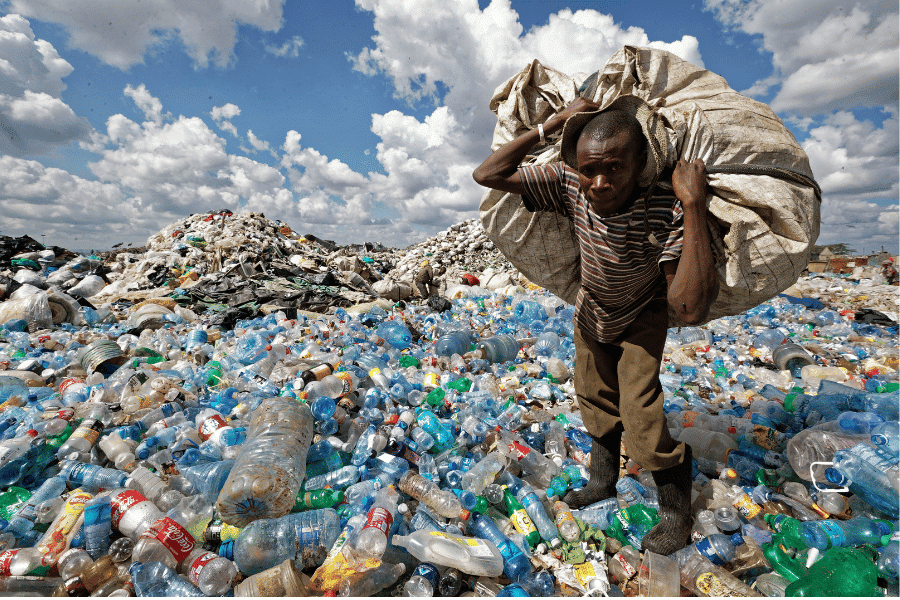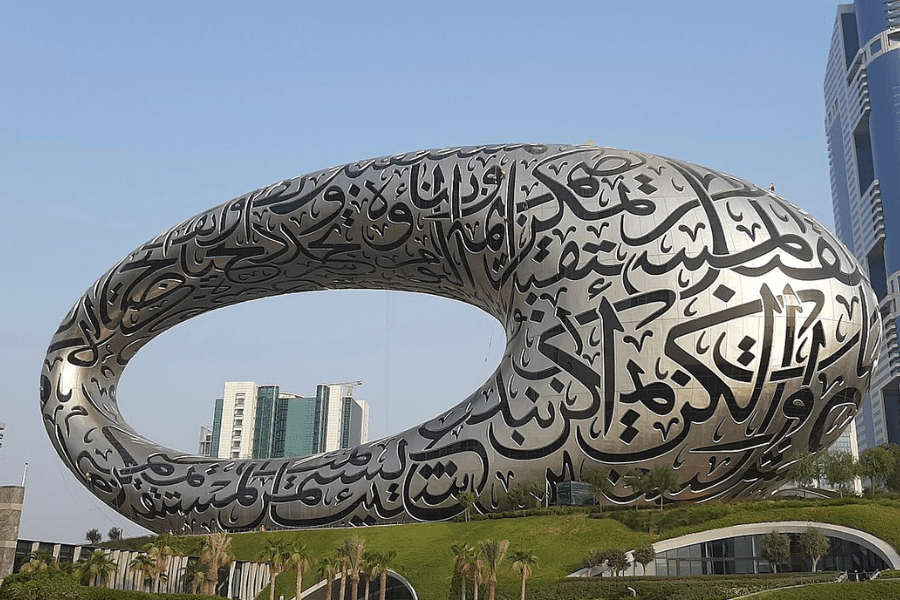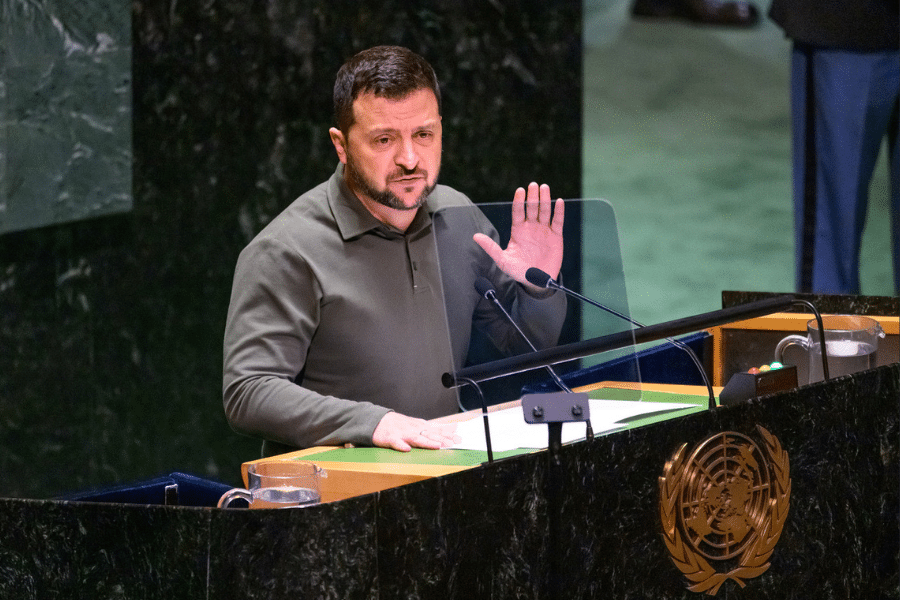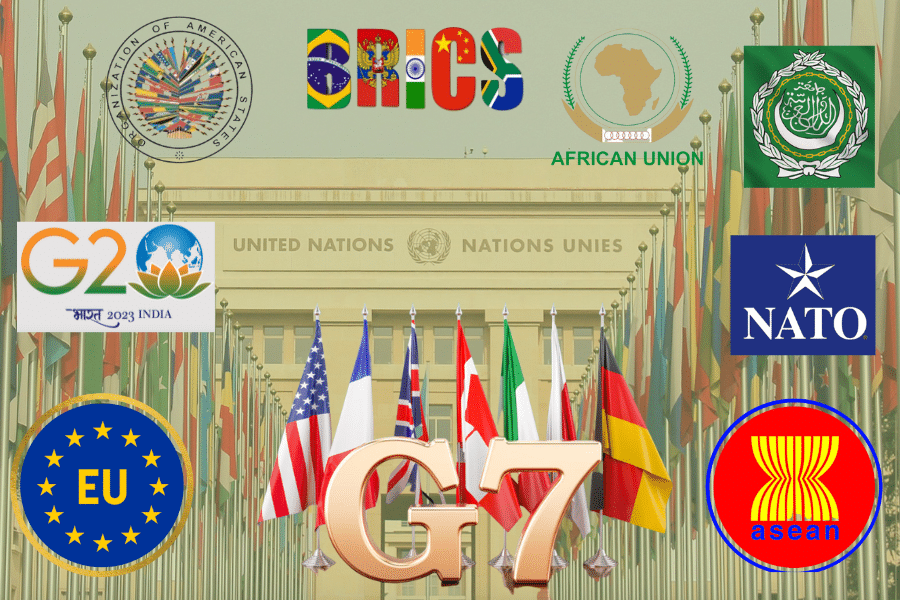
by Miquéla Thornton | 19 Jan 2024 | Environment, Student Posts, University of Wisconsin, Youth Voices
Making sure wealthy countries can’t dump their plastic waste on poor nations is important. But how can we stop producing it in the first place? A man walks on a mountain of plastic bottles as he carries a sack of them to be sold for recycling after weighing them...

by Alister Doyle | 22 Nov 2023 | Decoder Replay, Educators' Catalog, Environment
For years, governments have engaged in marathon annual talks to try to end global warming. But they often fall frustratingly short. A giant sculpture tops the Museum of the Future in Dubai. Credit: Lyonerov CC by 4.0 Editor’s note: Beginning 28 November, some...
With COP28 beginning in Dubai this week (late November 2023), help your students contribute to the climate conversation with this article originally published in October 2022 ahead of COP27 in Egypt. Climate journalist Alister Doyle runs down what to expect with these global summits — and why they often fall short.
Exercise: Read the article with your class to cover the background and purpose of COPs. Then, have students find current media coverage of the event. How does today’s coverage compare to Doyle’s piece from one year ago? What, if anything, has changed? Is the general consensus on climate change mitigation more or less optimistic than it was a year ago?

by Enrique Shore | 27 Sep 2023 | Educators' Catalog, Politics, Russia, Ukraine, World
Ukraine leader Volodymyr Zelensky criticized the UN for failing to stop Russia’s invasion. But to do more would mean changing how the United Nations works. Ukraine’s president Zelensky criticizes the United Nations for not doing enough to stop the war, during...
ND photojournalist Enrique Shore takes us to the 78th UN General Assembly in his piece covering Ukraine leader Volodymyr Zelensky’s speech condemning Russia’s invasion of his country. Is holding Russia accountable for its “unprovoked aggression” possible given the current United Nations structure?
Exercise: Read the article with your class, then have students analyze this political cartoon (symbolism, captions, dialogue, etc.). What parallels can students draw between the information in the article and the symbols in the political cartoon? How likely is reform of the current UN structure? Students can then create their own political cartoons depicting the structural tensions detailed in the article.

by Susanne Courtney | 22 Sep 2023 | Climate decoders, Decoders, Economy, Educators' Catalog, Environment, Politics, World
The small island nation of Barbados is leading the call for international finance reform needed to fight the impacts of global warming. The world is listening. From the left, Prime Minister of Barbados Mia Mottley, Netherlands’ Minister of Finance Sigrid Kaag,...
June to August 2023 were the world’s hottest months on record, meaning the stakes are high to address climate change for all. This is especially true for small island nations and developing countries who do little to contribute to climate change, but disproportionately suffer its consequences. Correspondent Susanne Courtney digs into Barbados Prime Minister Mia Mottley’s plan to level the climate financing playing field in this Decoder.
Exercise: Inequities in climate financing loom large. Read the article with students, then have them explore this interactive visualization of historical greenhouse gas emissions by country and region. How does your country or region’s emissions compare to those of the world’s largest emitters? Create an infographic depicting this information, including a call to action for students to promote climate action in their local communities.

by Bernd Debusmann | 18 Sep 2023 | Decoders, Educators' Catalog, History, Politics, Ukraine, World
When Russia invaded Ukraine, the “international community” stood back. But is there such a thing? What, if anything, can bring the world together? The entrance to the United Nations in Geneva is obscured by the emblems of a dozen international economic and...
Blaming the “international community” for inaction is easy. But does this community actually exist, or is it just tantamount to the United States and company? Correspondent Bernd Debusmann runs it down in this Decoder.
Exercise: Divide students into nine groups. Each group will be assigned one of the regional organizations mentioned in the article: NATO, European Union, Arab League, G-7, G-20, ASEAN, OAS, African Union, BRICS. Groups should research their assigned organization and identify the organization’s main objectives and stance on current international tensions (e.g. war in Ukraine, economic sanctions on North Korea, nuclear proliferation, etc.). Can these regional groups work together to create a true international community, or are their interests too disparate?





